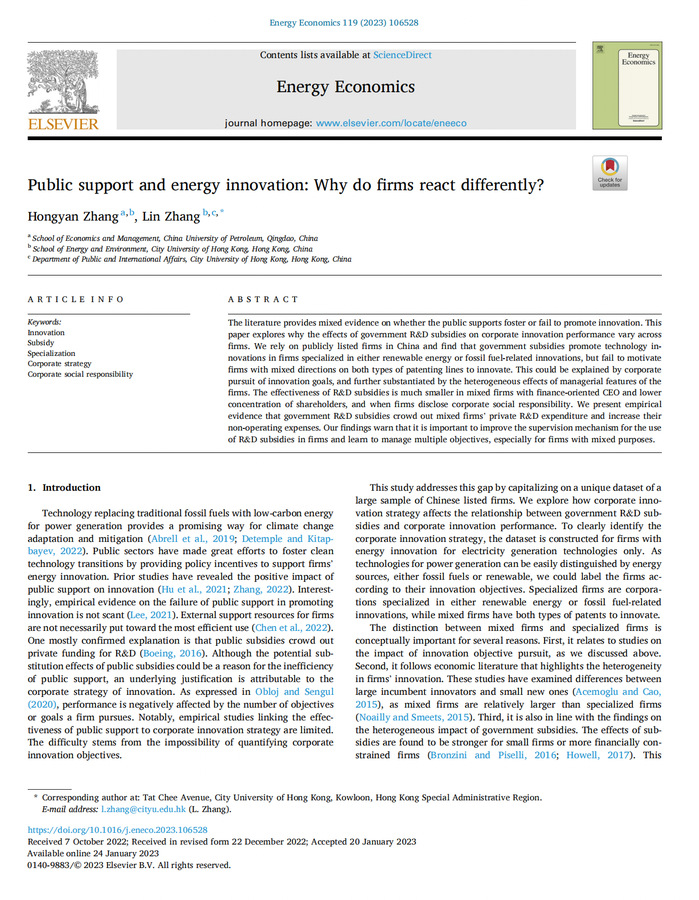The literature provides mixed evidence on whether the public supports foster or fail to promote innovation. This paper explores why the effects of government R&D subsidies on corporate innovation performance vary across firms. We rely on publicly listed firms in China and find that government subsidies promote technology innovations in firms specialized in either renewable energy or fossil fuel-related innovations, but fail to motivate firms with mixed directions on both types of patenting lines to innovate. This could be explained by corporate pursuit of innovation goals, and further substantiated by the heterogeneous effects of managerial features of the firms. The effectiveness of R&D subsidies is much smaller in mixed firms with finance-oriented CEO and lower concentration of shareholders, and when firms disclose corporate social responsibility. We present empirical evidence that government R&D subsidies crowd out mixed firms' private R&D expenditure and increase their non-operating expenses. Our findings warn that it is important to improve the supervision mechanism for the use of R&D subsidies in firms and learn to manage multiple objectives, especially for firms with mixed purposes.
主要创新点:
探究了在企业多元化和专业化创新战略下,政府研发补贴对企业能源技术创新的差异化作用,明晰了企业异质性创新战略下的能源技术创新机制,揭示了企业潜在能源转型行为规律,为向清洁能源过渡的能源转型提供了政策启示。

原文链接:https://doi.org/10.1016/j.eneco.2023.106528
Edited:Xie Danyang



